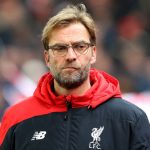Five days and 14 matches in and the World Cup is struggling to live up to its billing as the planet’s premier football tournament featuring the top names in the game.
No matter how much gloss anyone wants to put on it, the quality in South Africa has been average at best.
We might have Wayne Rooney, Cristiano Ronaldo, Fernando Torres, and Kaka, but up till now the din of the vuvuzelas that reverberates around each stadium is the most talked about aspect of the extravaganza.
The football is still lacking the spark that sets people’s hearts pumping.
Even after Brazil entered the tournament by beating North Korea 2-1 on Tuesday evening, there has yet to be an edge-of-the-seat thriller that can be considered a classic.
The most worrying aspect is the lack of goals.
Apart from Germany’s 4-0 demolition of Australia, no other match has seen the ball in the net more than twice. Two games have been extremely ordinary 0-0 draws.
According to FIFA statistics, no team has managed more than 10 shots on target in their opening game — that honour belongs to only Brazil and Germany. Most have only had two or three.
The woodwork has been rattled just eight times.
A growing number of players are blaming the FIFA-approved jabulani ball made by Adidas, with Brazil’s Julio Cesar remarking that it was of the sort of quality you buy in a supermarket.
“Rotten” said Spain’s Iker Casillas and “unpredictable” was the verdict of Italy’s World Cup-winning ‘keeper Gianluigi Buffon.
Tests by Australian scientist Derek Leinweber, based at Adelaide University, concluded after a series of computer tests that the ball does indeed fly faster and is more unpredictable than its predecessors.
Not surprisingly both Adidas and FIFA have been vocal in its defence, but you can’t disguise the fact that the ball has been swerving all over the place when launched in the air.
That means balls flying over the crossbar or wide past the post when they should be heading for the back of the net.
Others have moaned about the pitches being too fast, preventing them from playing their normal game.
Italy coach Marcello Lippi was one to use this line after the defending champions only managed a 1-1 draw in their opening game against Paraguay.
“You have to bear in mind the turf was really beautiful looking, but very slippery and very hard to control the ball,” he said of the Green Point Stadium in Cape Town.
Several players, and even referees, have come a cropper in Cape Town during the first two games it has hosted, felled by the greasy grass.
The fact that five of the nine host cities are more than 1,000 metres (3,300 feet) above sea level could be another explanation for the general lack of quality.
Most teams have trained at altitude in preparation and even used oxygen masks to be ready, but the thin air can still make breathing more difficult and impacts on recovery time.
Balls can also fly faster and more erratically, causing headaches for defenders and goalkeepers.
Or perhaps the players are simply tired after long, gruelling club seasons.
Whatever the explanation, there has been the odd memorable moment, such as England keeper Robert Green’s embarrassing fumble that gifted the United States a 1-1 draw.
That effort will inevitably go down as among the worst World Cup howlers ever.
Winston Reid’s stoppage time equaliser for New Zealand against Slovakia, meanwhile, was history in the making — the All Whites had never before collected a World Cup point.
And any tournament that features reclusive North Korea is bound to generate interest, more for what their players don’t say than for what they do.
There are still many matches to go, plenty of time for the tournament to catch fire, but until now the spark has been missing.
- Soccer News Like
- Be the first of your friends!




















ABOUT THE AUTHOR
SoccerNews
Soccernews.com is news blog for soccer with comprehensive coverage of all the major leagues in Europe, as well as MLS in the United States. In addition we offer breaking news for transfers and transfer rumors, ticket sales, betting tips and offers, match previews, and in-depth editorials.
You can follow us on Facebook: Facebook.com/soccernews.com or Twitter: @soccernewsfeed.